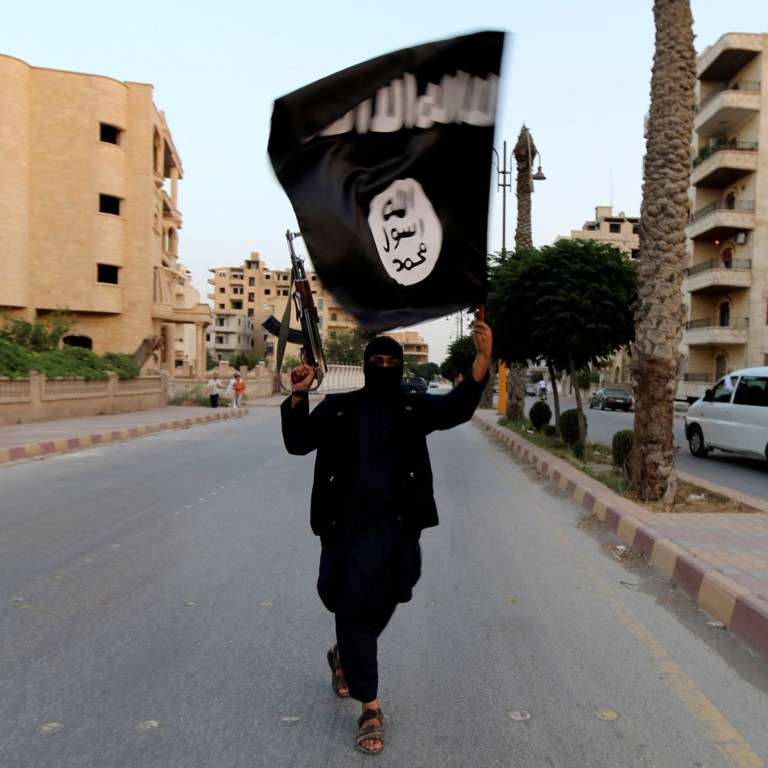
62-year-old Singaporean Isis supporter who self-radicalised online is the oldest identified, says expert
- The woman is one of three Singaporeans facing travel restrictions over support for the militant group
- Her arrest is seen as a sign of Isis’ continued radicalisation efforts and its recruitment of ‘influencers’ to draw people to its cause
“Investigations showed that Rasidah’s contacts with these individuals were mainly driven by her deep sympathy for Muslims suffering in overseas conflicts,” said the ministry, which issued her with a restriction order that will see her monitored and prevented from travelling abroad.
Professor Zachary Abuza of the Washington-based National War College said Rasidah was “definitely the oldest woman” radicalised online to be identified by authorities.
He said her case shed light on some of Isis’ “propaganda techniques”, which involve multiple channels pushing different messages to different audiences as well as the recruiting of “influencers” to draw people to the group’s cause.
“One thing [Isis does] to target women or Muslims in very moderate or prosperous states far from Iraq or Syria is to focus on the suffering of Muslims in conflicts around the world,” said Abuza, who specialises in counterterrorism and insurgencies in Southeast Asia.
“This connects them to the ummah [Muslim community],” he said. “Once people feel that connection, they are much more susceptible to online radicalisation and recruitment.”
[Rasidah is] someone who could inspire others to take up the struggle that she was not able to
While Isis would not have any expectation that a 62-year-old woman would join them in Iraq or Syria, Abuza said she could play a key role as an influencer in her own community as “someone who could inspire others to take up the struggle that she was not able to”.
The home ministry’s statement said a 40-year-old unemployed man, Imran Mahmood, was detained under the Internal Security Act (ISA) in January, while a 39-year-old food delivery man, Mohamad Fairuz Junaidi, was given a restriction order.
Imran wanted to travel to Syria to fight alongside Isis. His radicalisation began in 2013 when he started listening to online lectures by foreign religious preachers and became “a strong supporter” of Isis’ violent objectives and actions, according to the ministry.
Indonesian suicide bomber in attack on police likely influenced by Isis
Fairuz was “emotionally affected” by reports of killings of Sunni Muslims in Syria, and also considered travelling there to join the militant group.
“Almost all radicalisation in Singapore is done by individuals through social media. It is a country of lone wolves. There is very little in the way of terrorist organisation, as the country is so small and the security forces so well-resourced,” Abuza said.
Singapore’s Minister-in-Charge of Muslim Affairs Masagos Zulkifli said the cases illustrate that there would always be those who are vulnerable to radicalisation.
“Over the years, the Islamic Religious Council of Singapore (MUIS) has stepped up both its online and offline engagement to counter such ideologies,” Masagos wrote on Facebook on Tuesday.
Top Malaysian police officer warns of suicide attacks as Isis fighters return
Four Singaporean ISA detainees – three men and one woman aged between 24 and 40 – were released in March and June.
According to the home ministry, the four had shown good progress in their rehabilitation and no longer posed a security threat that required preventive detention.
Muslim affairs minister Masagos said the Muslim community “must help” the former detainees reintegrate into society and continue to look out and care for one another.
Said Abuza: “Singapore has the resources at its disposal to engage in copious post-release monitoring, unlike Indonesia. It still is a very cautious and overly conservative government when it comes to security.
“So for them to release suspects really speaks to the confidence they have in their [rehabilitation] efforts.”

